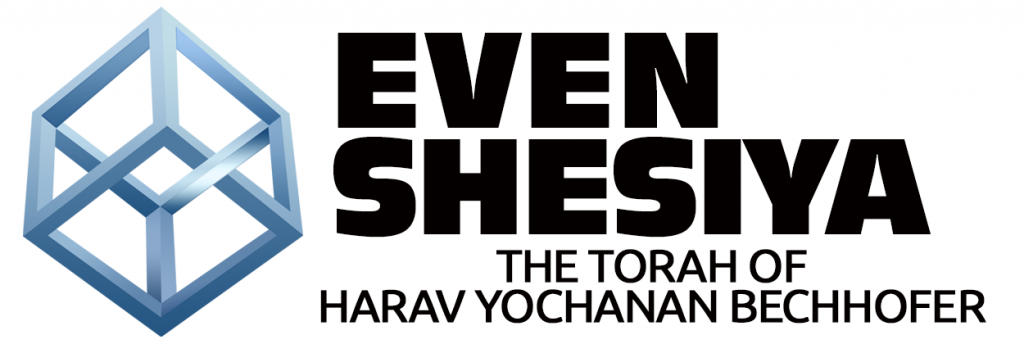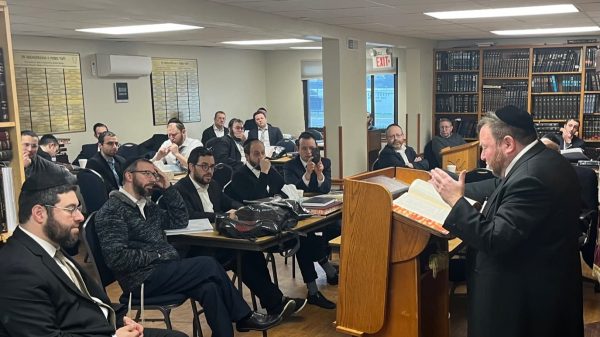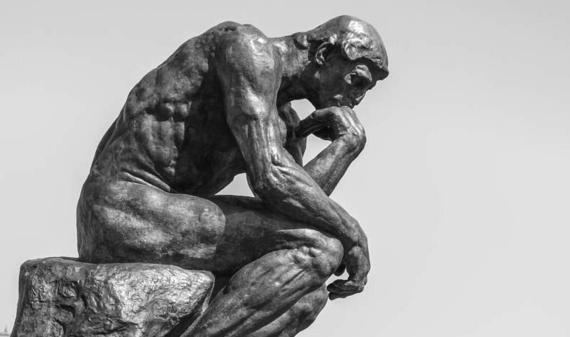Click here to download PDF
The Two accounts of Matan Torah
In this week’s Parsha we find a whole other account of Matan Torah from a different perspective. It looks more like a festive occasion, accompanied by eating and drinking, contrary to the experience of awe and fear depicted in last week’s Parsha. What is the message in this duality? The legendary declaration of the Jewish people “Naaseh V’Nishmah” – we will do and we will hear, for which they were highly praised, is not in last week’s parsha. It is in this week’s parsha with the more ‘festive’ angle on Matan Torah. Why does it belong here and not in the account of awe and fear in parshas Yisro?
Monetary law- why now?
Why is it that immediately after the first account of Matan Torah the Torah launches into the “Mishpatim”- the laws of monetary and Civil law? We would expect that after the greatest spiritual event of all times to have something more ‘spiritual’ like the building of the Mishkan! Why is it that the Torah went from the awesome account of Matan Torah to monetary and civil law and only after that revisited Matan Torah from another angle?Set the Table
Rashi at the beginning the Parsha on the words “that you should place before them” brings the Chazal: “…said Hashem to Moshe: don’t think to yourself ‘I will teach them the law or two or three times until it will be sharp in their mouth as the law has been coined but I will not trouble myself to make them understand “Taamei HaDavar”-the reasons for it and what it truly means’ and that’s why it says: “that you should place before them” – like a set table ready to eat before the person”. There are two questions here: First of all, why would Moshe withhold Torah from the Jewish people? The second question is: why is the ultimate metaphor of understanding “like a set table ready to eat”?
Taam
The Hebrew word for taste “Taam” has two other meanings. One is reason like in Rashi above “Taamei HaDavar” – Reasons for the laws. The other meaning is the musical movements (“Taamim”) when reading from the Scriptures (in Yiddish ‘Trop’) what do these three things have in common: taste, musical movement, and reason?
There are five senses: sight, hearing, smell, touch, and taste. Taste is the ‘odd man out’. The first four senses are measuring the outside world as the outside world. You see what’s happening around you, you hear what’s being said around you, you smell an object that’s outside of your nose. Even the sense of touch, when you come into direct contact with an object, the object is outside of your body and your fingertips that are touching it are on your side of the body. The sense of taste is different. The sense of taste is sensing something inside your body. It is the unique sensation of internalizing something! Even if you stick out your tongue to lick something, you will not taste it fully until you put your tongue back in your mouth! Taste is the unique sensation of when you’ve internalize something.
Intellectual Eating
To obey a command you just need to understand the words spoken to you. You don’t need to know the reason for the command. The reasons are hidden in the mind of the commander. You do not see why it has to be this way, but you’re obeying what he wants and thinks. When you understand the ‘reason’ for an idea you have the intelligence that designed and dictates that idea inside your head. The Rambam in the Moreh Nevuchim has an entry on ‘eating’ and says that taking in knowledge is likened to eating. That means taking in knowledge in a way where it’s not just orders for you to obey, but rather the inner reasoning that dictates those orders are in your mind. It’s as if you’ve eaten the idea. You internalized it, you’ve made it a part of you. When the inner reasoning is ‘in your mind’ the only metaphor for that pleasure is eating and enjoying the taste. The pleasure of understanding the reason is mental and spiritual eating
Olam Haba
With this we can understand what the Rambam writes all over regarding why ‘Olam Haba’ is called a “Seuda” – a feast! We don’t just observe the ‘Ziv HaShechina’ –Divine Aura, we actually take it in and internalize it! The Posuk on this week’s Parsha says: “….they saw Hashem and they ate and drank” The Gemara says refers to “olam Haba” seeing Hashem and eating and drinking means enjoying the Aura of the Shechina and taking it in like food and drink”.
The taste of the ‘Mann’
With this we could understand the secret of the amazing taste that the Jewish people had in the ‘Mann”. Those tastes resulted from their thoughts! It tasted like whatever they had in mind. The Ramban explains that the ‘mann’ was a physical manifestation of the Aura of the Shechina that we enjoy in ‘Olam Haba’. That aura is enjoyed with the unique Joy of intellectual internalization which is likened to eating and taste. That’s why its physical taste was a result of ‘thinking’ which is spiritual taste. To the extent that a person thought more deeply and was increasing his ‘spiritual taste’ to that extent it manifested itself in a parallel way in the physical taste on the tongue.
Deciphering Rashi
With this we could understand Rashi. Hashem was saying: “Don’t just to teach them the Halacha two or three times until they’ll know the ‘coined Halacha’ meaning to say that they’ll know how to obey what I said. I want more than obedience! The infinite depth of the Torah is not just for you and your unique level, it’s for them also! I want you to give them the infinite intelligence behind the Halacha so they can become one with the Torah! Make it like “a set table ready for them to eat” that they could take it in and have their minds meld together with the infinite intelligence of the Torah!
Music
Music can be sweet like taste. There are the words with their literal meaning and then there is the musical movement which is the higher understanding that reveals the inner thoughts that the speaker has behind, between, above and beyond the words. A person can greet you at the door and say the expected niceties of “Welcome, hello, how are you?”. You wonder: “is he happy to see me or am I disturbing him?” By listening to the tone of his voice you can get a glimpse of his inner thoughts. If he said it with a happy tone you know that he is sincerely happy to see you. If you hear anger in his tone you know that you disturbed him but he is just forcing himself to greet you in the expected way. In “Lomdus” where we try to get to the “Taam” – the inner reasoning. How? We are trying to hear the ‘tone of voice’ of the Halacha – that is the music to our ears – when the Torah doesn’t just sound like dry orders but we hear the beautiful music of the infinite intelligence.
Naaseh V’Nishma
Now we can understand the famous commitment “to do and then to hear”. The “hearing” that follows doing is the “hearing” of understanding the inner depths revealed by the ‘tone’ of the Commandments that we keep. Obviously you need to hear in order to do as commanded but you only have to hear the ‘raw words’ to fulfill the Commandments. The “hearing” that follows the “doing” is the music of the infinite intelligence that you’re only entitled to after dutifully obeying. We said to Hashem: “in the Merit that we will fully obey with no questions asked, we want to also hear the music of the Deep reasoning behind those Mitzvos”.
The Mishpatim
The Torah comes from the highest place in Heaven, even above the world of angels. How and why did it become so accessible to Mortal man? How can man take it in and enjoy it like an intellectual and spiritual feast? How can we hear the sweet music of the infinite intelligence? This is actually the result of the fact that the Torah has in it monetary and civil affairs! This is indicative of the fact that the Torah reaches all the way down to the human level. “Mishpatim” are these laws that even if Hashem wouldn’t have commanded them, mankind would have had to legislate things like them for the sake of having Law and Order and a just Society. Klal Yisroel didn’t have to legislate their own civil and monetary laws. The Torah itself “reached down” to that level. The Torah came down from the highest Heavens all the way down to the human level for the chosen people in a manner that they can not only understand it, they can internalize it! This is especially true of monetary and civil law where “sevoroh”- human intelligence plays the greatest role. These laws are on par with human intelligence and they are the ‘Gateway’ to get into other areas of the Torah that are beyond human intelligence. Chazal say: “one who wants to get wise should engage himself in monetary law” because these are the gateways to the wisdom of the Torah that is even beyond human intelligence. This is why the masechtos on monetary laws are called “Gates”: Bava Kamah – first gate, Bava Metzia – middle gate, Bava Basra- last gate. Monetary law is the Gateway where human intelligence can touch the Torah that reached all the way down to the human level. Through monetary law we could get in and climb to the higher levels of Torah that are beyond what our minds could ever fathom. With this we could understand why right after the giving of the Torah the Torah goes straight into monetary and civil law. The message is: when Hashem gave the Torah He really gave it over, totally! He ‘pushed’ the Torah all the way down to the level of human affairs to address issues that could be totally understood and internalized. By grasping on to that edge of Torah we could get in and climb to all the infinite wisdom in the other areas of Torah as well.
Other side of Matan Torah
Only after introducing us to this phenomenon of how the Torah reached all the way down to the human level can we appreciate the other side of Matan Torah. We realize in retrospect that as scary as Matan Torah was, it also facilitated the most pleasurable experience in reality. Torah came all the way down to this realm and now we can ‘eat and drink’ it! We can “Hear” the music above and beyond the words of the dictates. This wonderful phenomenon is displayed by the “mishpatim” that make the Torah close enough to be internalized.










